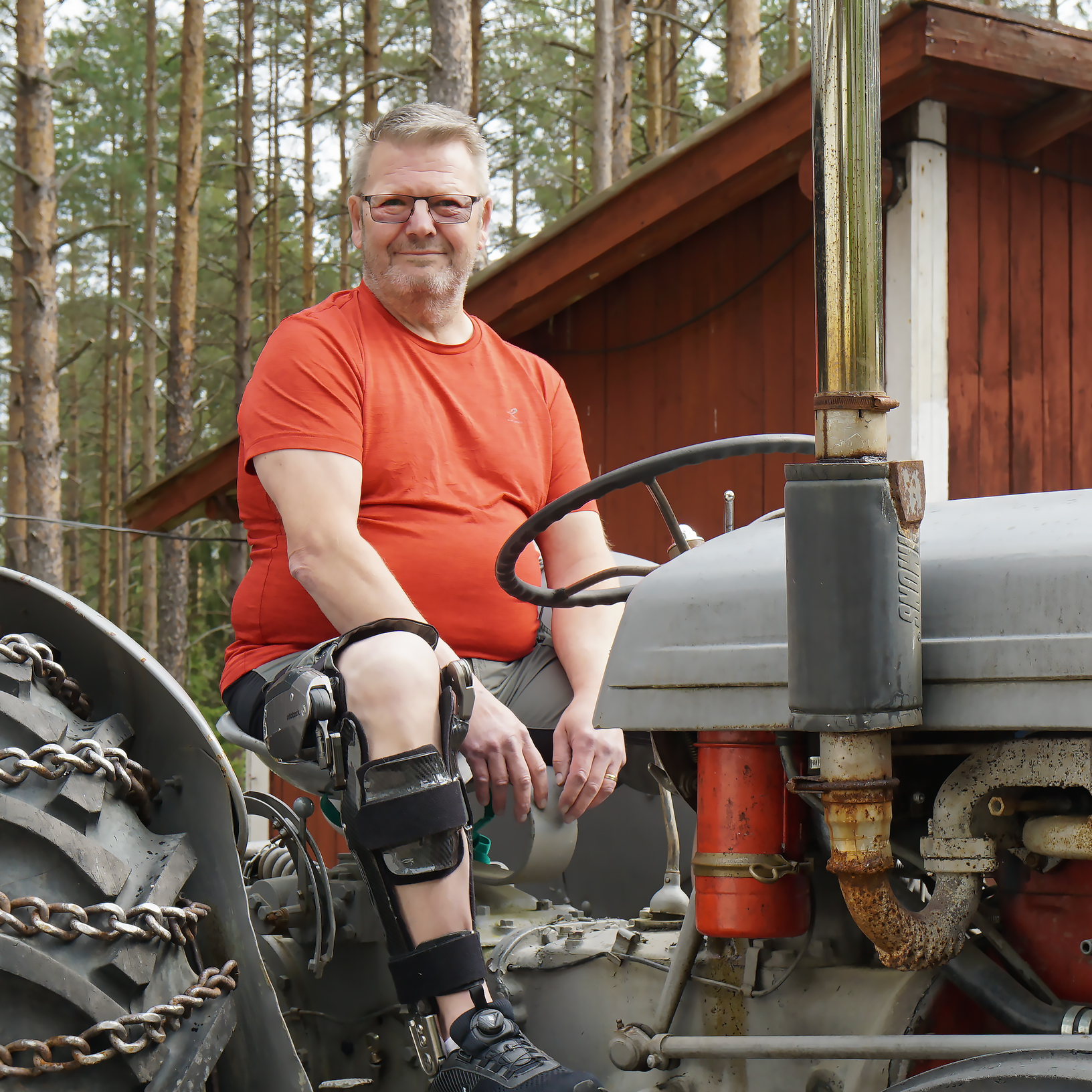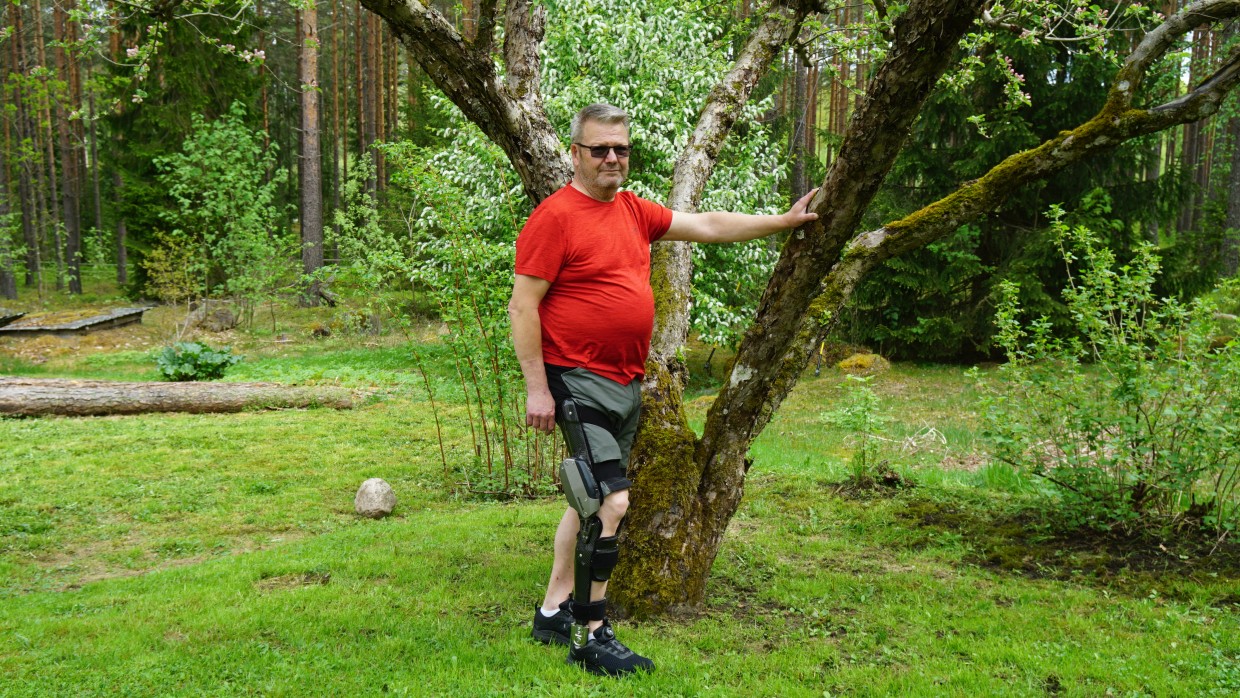News
News
It can happen to anyone: Kenth Ringström on the miracle of being able to walk again
In the prime of life – and suddenly everything falls apart. Kenth Ringström suffered a completely unexpected brain haemorrhage at the age of 26. A wheelchair, crutches, pain: this was his reality for years. It was only with the help of modern medical aids that he regained what many take for granted – the ability to walk. And with it, independence, joie de vivre and the courage to dream again. His story shows why orthopaedic treatment and care is something that concerns everyone.
Kenth, a young man from Sweden, was active and living life to the fullest – until a single moment changed everything. The diagnosis: brain haemorrhage. The consequences: he could no longer walk. Suddenly, he was confined to a wheelchair. On crutches. Dependent on others. Physically limited, emotionally exhausted. Years passed.
‘I tried to find other solutions, but nothing worked very well,’ he says looking back. But then came the turning point – thanks to modern technology. A computer-controlled orthosis enabled Kenth to walk again. At first he was sceptical. He had experienced too many setbacks. But after taking his first steps, he knew that this time it was different.
‘I could suddenly stand up and start walking. It took a few steps before I understood how to do it. Then I just walked. It was a fantastic experience.’
Today, Kenth wears his medical aid every day. He goes for walks. He gets out and about. He is participating in life again – on two legs.

Movement as liberation
Kenth doesn't just use his new-found mobility for everyday life. It gives him structure, self-confidence – and relief. Years of using a wheelchair and crutches have left their mark: chronic pain. A special suit for muscle stimulation now helps to alleviate this pain. This is also what modern orthopaedic treatment and care is all about – it doesn't stop at walking, but begins where quality of life becomes possible.
With his new mobility, Kenth is a different person today. Not because the past has disappeared, but because the future is open again.
Dreaming again
The dreams that Kenth had long put aside are returning. ‘A trip through Europe has always been a dream that is now coming true,’ he says. A return to working life is also on the cards again. On a smaller scale perhaps – but with real prospects.
Kenth wants more people to have this opportunity. He wants medical aids to be seen not as exceptions, but as a natural part of treatment that helps people return to an active life. His story is not unique – it is an example of what is possible when you have access to the support you need.
Kenth has not only learned to walk again – he has learned to live again.


